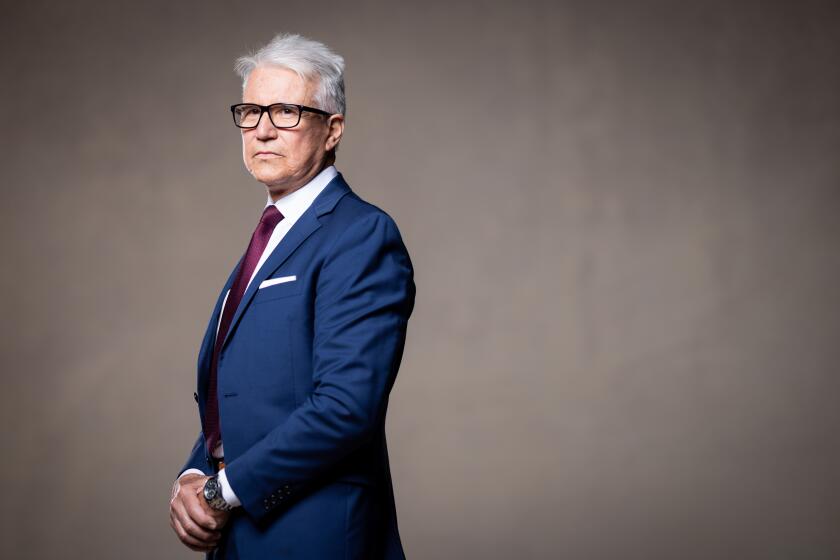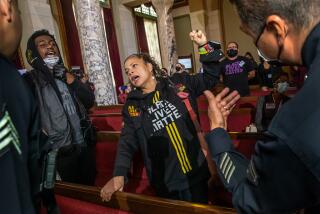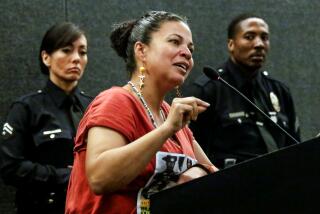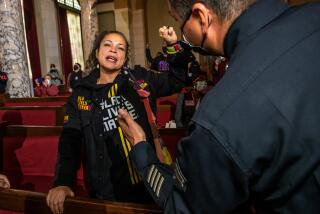- Share via
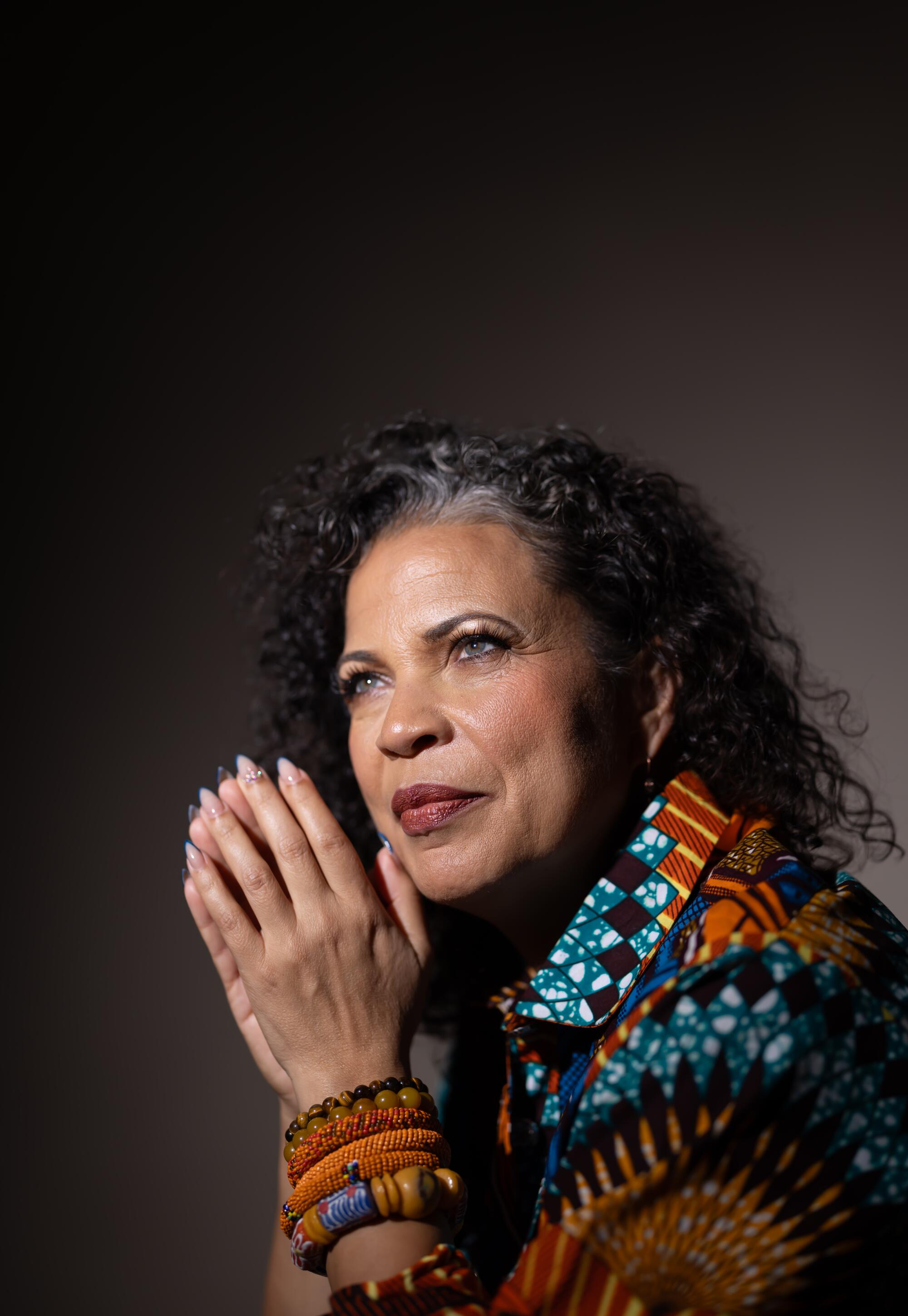
The fight for Black liberation is, by definition, exhausting.
It makes sense, then, that Melina Abdullah, co-founder of Black Lives Matter Los Angeles, and others who had gathered for a weekly protest in front of the Los Angeles Police Department’s union headquarters were taking part in some mild calisthenics.
“Switch sides,” said an instructor on stage, audible over the DJ playing Wiz Khalifa’s “Black and Yellow.” Those in attendance stretched the other arm up and started bending to the other side. “Now,” the instructor said after a few seconds, “we’re gonna interlock our fingers, and reach into the sky.”
Discover the changemakers who are shaping every cultural corner of Los Angeles. L.A. Influential brings you the moguls, politicians, artists and others telling the story of a city constantly in flux.
Abdullah looked at ease as she prepared to address the crowd. This late August afternoon marked the 132nd straight Wednesday that the L.A. chapter of BLM had protested on the doorstep of the Los Angeles Police Protective League. The unremitting demonstration, Abdullah told me, is necessary because the LAPPL “is not a real union.” She wants it “removed from the house of labor.”
The union, not surprisingly, is no fan of Abdullah and BLM’s L.A. chapter. When the BLM group called for the removal of now-retired LAPD Chief Michel Moore, the union’s board of directors called the move “yet another half-backed stunt disguised as a serious solution” and suggested the group should “focus on actually accomplishing something, anything, that will make L.A. safer.”
Delegitimizing police unions is a specific goal. More broadly, Abdullah’s persistent push against police abuse and violence, as well as every other manifestation of racial inequity, is part of her fight for a better Los Angeles.
The changes George Gascón has made as L.A. County D.A. are felt every day in the criminal justice system and could deepen as he seeks another term.
For nearly four years, Abdullah and BLM L.A. protested now-former L.A. County Dist. Atty. Jackie Lacey — whose husband in 2020 infamously brandished a firearm, threatening Abdullah and other organizers who had shown up to demonstrate outside the couple’s home. The BLM movement won when voters chose George Gascón over Lacey in 2020. Since then, the group has shifted its focus to the City Council, the police commission and the LAPPL.
After the 2020 murder of George Floyd, as the country convulsed with protests over policing, Abdullah found herself with a bully pulpit and used it. Elected city officials considered the plans backed by her and her allies for cutting police spending and shifting the savings into housing, healthcare and other services.
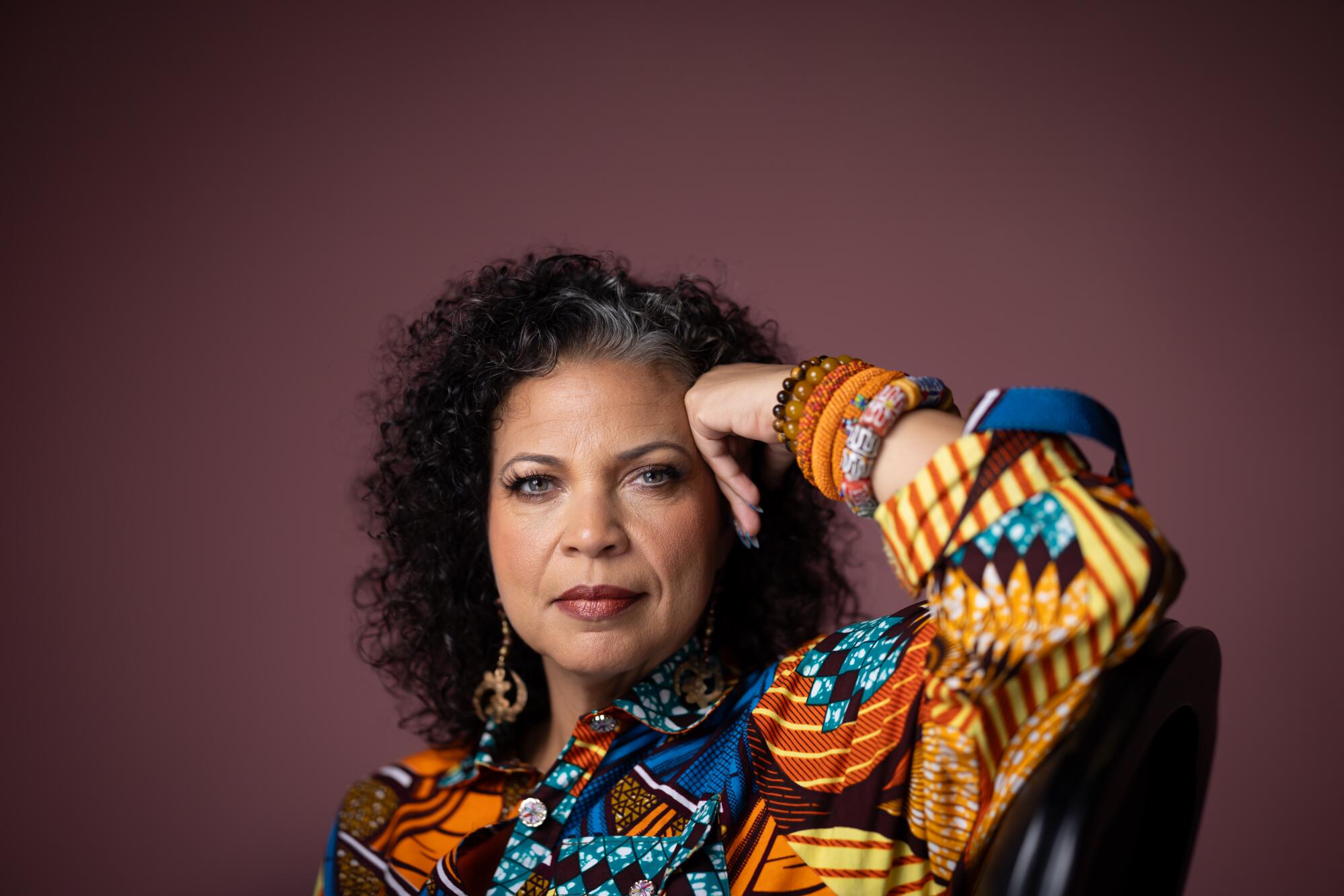
Abdullah also found the limits to her influence. Last year, over her objections, city leaders awarded healthy raises to police officers and increased the size of the LAPD budget, leaving Abdullah squarely in the role of outside agitator.
Her ability to persuade and agitate will be tested in new ways in the run-up to the presidential election. In April, independent candidate Cornel West tapped Abdullah as his running mate in his long-shot campaign.
“Both of us want to disrupt the narrative that you have only two choices,” said Abdullah, referring to Donald Trump and President Biden, the presumptive major-party nominees. “The world tries to tell us that we’re tethered to certain ideas that we don’t have to be tethered to. We can be expansive, and imaginative.”
A Cal State professor in Pan-African studies, Abdullah, 51, comes by this work honestly. “I was born in the 1970s in Oakland, California,” she told me later. “I’m, of course, a member of the hip-hop generation — but also a member of the [Black] Panther cub generation. And really grew up at a time and place where ... it was expected that you stand up against injustice.”


